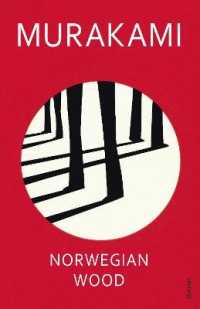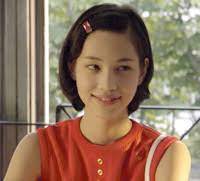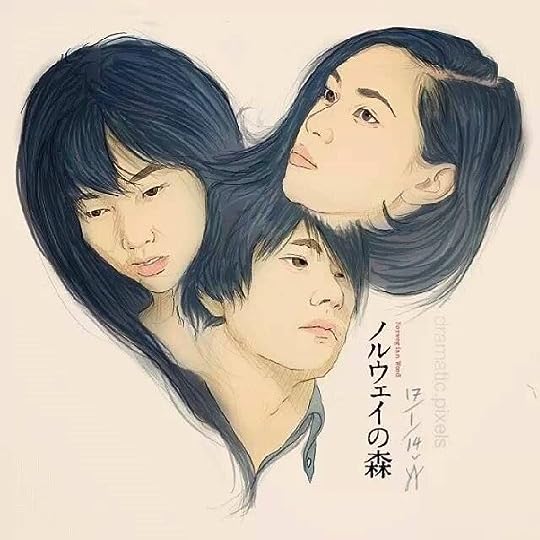About
Author: Haruki Murakami (Japan)
Genre: Coming-of-age
Setting
Place: Tokyo, Japan
Time: 1960-70s
My Rating (see what this means)
My Subjective Rating: 3
My ‘Objective’ Rating: 3.54
Introduction

Early in ‘Norwegian Wood’ – Nagasawa (a relatively minor character) tells the protagonist-narrator Toru,
“If you only read the books that everyone else is reading, you can only think what everyone else is thinking”.
Norwegian Wood incidentally is Murakami’s most famous novel and is believed to have been read by everyone in Japan. Despite this, contrary to Nagasawa’s belief – the readers hardly think the same and characters in the book generate very polarizing opinions. What doesn’t help is that the author as well as the narrator rarely share any personal impressions on situations in the book, leaving most things for the readers to interpret and disagree on.
Synopsis
Japan, in the late 1960s, was dealing with daigaku funsō – which were multi-year students protests with an incoherent set of demands. The protagonists in ‘Norwegian Wood’ were in the same universities amidst this chaos – but their lives were much more chaotic – and they had nothing to do with the protests.
“Gee, are we counterrevolutionaries?” Midori asks Toru. “Are we going to be strung up on telephone poles if the revolution succeeds?” “Let’s have lunch first, just in case.”
The overall story, at least on the face of it, is a simple love triangle and young Toru, the indecisive protagonist, has to choose between 2 diametrically opposite girls – Naoko and Midori, both of whom he loves.
Discussion
Prologue to the disucssion:
When, on completing the novel, I found myself having captured Nagasawa’s quotes most often, I wondered if I got the book all wrong. For Nagasawa was not just a minor character – he also perhaps was the only one whose life philosophy was not only discussed by the other characters but also strongly rejected – and for good reason.

There was much to dislike about Nagasawa – while he was a smart, ambitious young man, with strong logical ideas – the ideas themselves were hardly moralistic. He was elitist, arrogant, not particularly empathetic, selfish and a serial womanizer despite his relationship to the very likable Hatsumi.
So, to make sure I didn’t get the book wrong – I read a lot of reviews. However, there seemed to be no agreement among the readers on how they perceive the characters and their actions. So Nagasawa remains at the center of my review.
Discussion (with spoilers):
Toru and Nagasawa, were in a sense, widely different personalities –
Toru, was an uninteresting young man with little to offer. He did things just because people ask him to. He couldn’t say no to anything – be it then taking care of a dying man he didn’t really know, or watching an S&M porno he doesn’t particularly enjoy – just to quell his boredom. The only fascinating conversations he could initiate was when he told jokes about his roommate.
Nagasawa, on the other hand, was a man of action. In his own words he’s – “..going to give it a hundred percent and go as far as I can. I’ll take what I want and leave what I don’t want. That’s how I intend to live my life, and if things go bad, I’ll stop and reconsider at that point. If you think about it, an unfair society is a society that makes it possible for you to exploit your abilities to the limit.”
It’s difficult to see much similarities between these two, so it made me pause when during an argument with Hatsumi – Nagasawa claims that Toru is just like him:
“…He may be a nice guy, but deep down in his heart he’s incapable of loving anybody. There’s always some part of him somewhere that’s wide awake and detached. He just has that hunger that won’t go away. Believe me, I know what I’m talking about.”
Now, Nagasawa, irrespective of his likeability, was no fool. Which let me to questions – Did Toru ‘loved’ loved Naoko or Midori?
A bit about Toru’s relationships

Naoko was Toru’s best friend Kizuki’s girlfriend. She was suffering from depression following Kizuki’s suicide – and her ‘love’ for Toru was companionship for the two grieving souls – until they end up sleeping together on her twentieth birthday. She was eventually sent to a sanitarium to recover from her depression – where Toru visits her a couple of times. During the visits, Naoko confesses to Toru that she is incapable of loving anyone, but they still have sexual relations (though never intercourse). Her condition eventually deteriorates.
Midori, unlike Naoko, was out-going, boisterous and unafraid to ask for (manipulate to get) what she wanted. While her initial friendship with Toru was platonic with wild elements like watching porn together, or visiting love hotels – she eventually breaks off with her boyfriend and expresses her love for Toru. But Toru cannot commit as he was still waiting for Naoko to get better.

What is love?
Before Hatsumi, frustrated by Nagasawa’s perverse logic, shuts him up during a dinner – Nagasawa lays out his definition of love – “You love someone if you think you want to understand them.”
While Toru was always willing to patiently listen to what anyone had to say, he never really understood Naoko. He always hoped (deluded himself) that Naoko would get better – and she might eventually love him and be able to have sex with him again. When the realization finally comes that it might be much longer than he initially thought it would, he drifts towards Midori, but pretends not to understand her when she confesses her love. His sense of responsibility towards Naoko, prevents him from sleeping with Midori.
Unable to decide, he reaches out to Reiko (Naoko’s older roommate in the sanatorium) for advise while asking Midori to wait. Naoko commits suicide not long after, mooting his dilemma – but Reiko believes “Whether Naoko is alive or dead, it has nothing to do with your decision. You chose Midori. Naoko chose to die.”
So did Toru love Naoko and Midori? – As per Nagasawa’s definition – certainly not. And Nagasawa did have a point –
Toru had a strong sense of responsibility. He even held Nagasawa responsible for Hatsumi’s suicide even though it happened 4 years after they were separated – and despite the fact that Nagasawa, for all his callousness, was always honest about not wanting to marry her. This sense of responsibility however, didn’t prevent Toru from being callous towards Naoko and particularly Midori on a number of occasions. For instance – he told Naoko about Midori

in his letter – which must have been hurtful for her to read about in the sanitorium, while he refused to tell Midori details about Naoko – letting her imagine an exotic relationship – which was also hurtful. And he doesn’t show much growth over the course of the novel (despite his partially successful attempt of not sleeping with anyone after promising Naoko).
But I still think Toru loved them – even if in a deeply flawed way. For there was at least is one difference between him and Nagasawa – the pathos he went through when things went wrong and the effort he was willing to put to right it – which unlike Nagasawa, made him open to advice that would hopefully allow him to grow. And he received 2 very good bits over the course of the novel itself –
Nagasawa’s – “Don’t feel sorry for yourself, only assholes do that.”
Reiko’s – You’re all grown up now, so you have to take responsibility for your choices. Otherwise, you ruin everything.”
Epilogue to the disucssion:
While writing this review, I realized two things about this novel:
Why did the novel generate such polarized opinions?
- A book has a lot of gaps in terms of background information – we never really know why Kizuki committed suicide, or what was really the reason behind Naoko’s illness, or why Midori lied about her dying father having left for Uruguay?
- The characters themselves are deeply flawed human beings, who make a lot of mistakes and there isn’t really always a closure for hurtful things they do.
Both this points, actually make the book realistic, in the sense – to quote Reiko “imperfect human beings living in an imperfect world”. But it isn’t difficult to see why this would be frustrating for some readers.
Some reviews that highlight the polarized opinions: Review 1, Review 2
There are still a lot of things I don’t get in the book!
- When Reiko suggests that they should sleep together in the final chapter of the book, Toru, instead of his standard response ‘Ok’/’Of course’, concedes that he was thinking the same thing. What was their relationship supposed to convey?
- Why did Naoko suggest she move-in with Reiko instead of Toru? Was it just because of her sickness which seems to have preceded even Kizuki’s suicide? Or were the events of the novel responsible for it?
- Midori also made problematic choices in her friendship with Toru – lying about her father, or ghosting him for months on end following one inattentive lunch. Who hurt the other more? And did it amount to a healthy friendship/relationship?
Picture Credits:
1. Norwegian wood movie (2010)
2. https://www.goodreads.com/review/show/2195041702